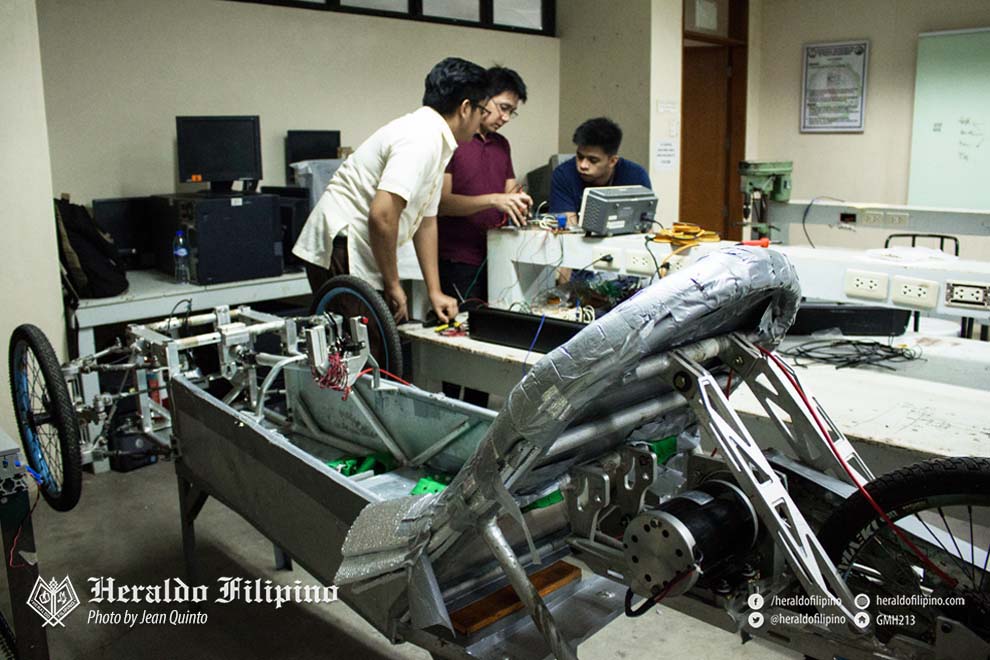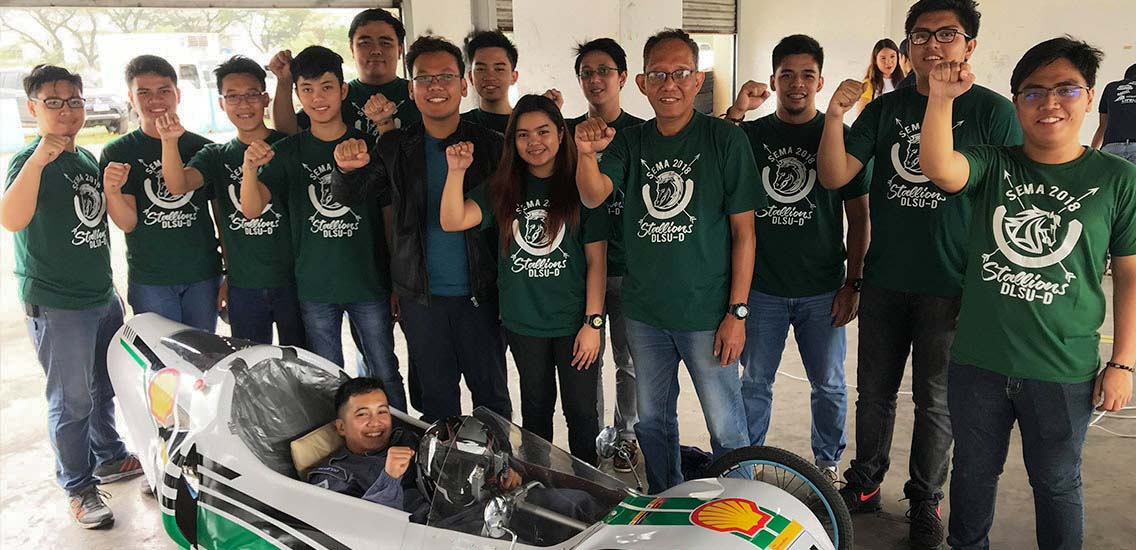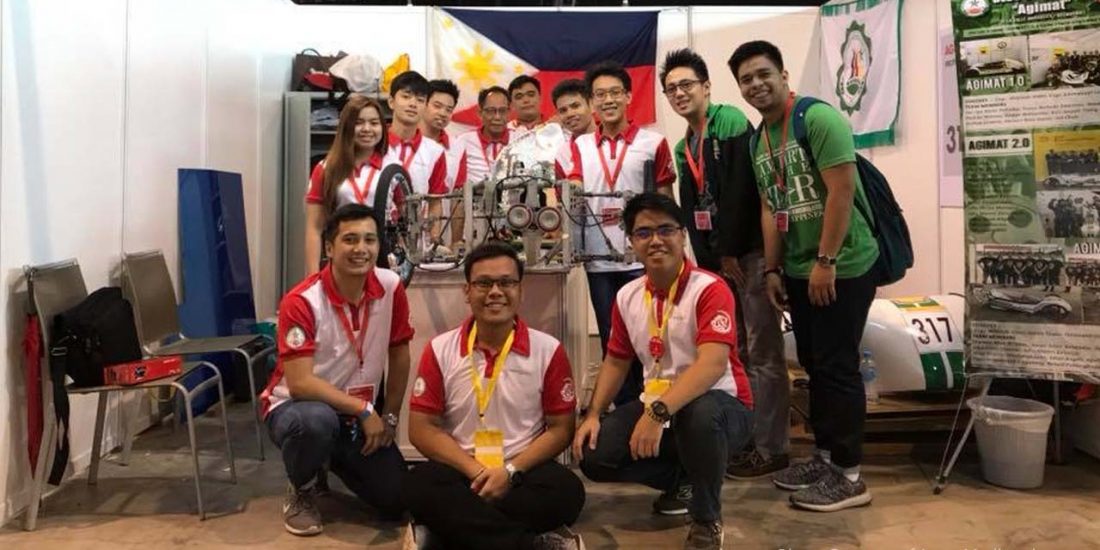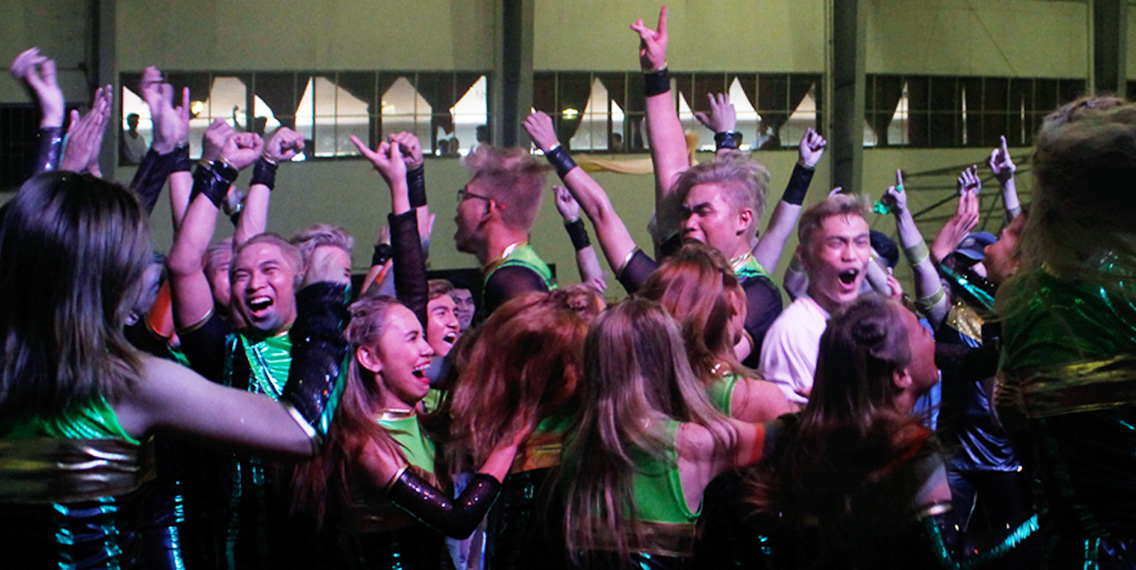DLSU-D Stallions earn slot in 2018 Shell Eco-Marathon Asia
The College of Engineering, Architecture, and Technology’s Engineering student-comprised eco-car team DLSU-D Stallions moves toward the final phase of the eco-car competition 2018 Shell Eco-marathon Asia, with their battery-electric prototype car “Agimat” held at the Changi Exhibition Centre in Singapore from March 8 to 11.
Shell Eco-marathon Asia is an annual student competition focused on creating energy-efficient cars. The competitors will be tested in the Mileage Challenge to test which cars can go the farthest on the least amount of fuel.
The Shell Eco-Marathon takes place around the globe with competitions in Asia, Americas, and Europe.
“‘Yong purpose naman namin for joining is [that] schools from Manila, schools in Visayas, in Mindanao [ay] pasado na [sa competition]. And since we are a La Salle school, which is a premiere university in Cavite, why not na sumali tayo sa ganyang competition,” DLSU-D Stallions Team Manager Jeruz Madlangbayan said in an interview with The HERALDO FILIPINO.
DLSU-D Stallions has been joining the Shell Eco-marathon since the eco-car team’s formation in 2015.
They have designed two cars, namely the Prototype and Battery-Electric energy-based “Agimat” and Urban and Internal Combustion energy-based “Magiting;” with Agimat being their first creation in 2015 and Magiting designed in 2017.

Each year, the cars’ design is modified to be lighter and more efficient and to consume less energy in compliance to the requirements of Shell Eco-Marathon. In September 2017, the team started the preparation for the modification of the cars according to Madlangbayan.
DLSU-D Stallions is divided into two teams working on the two cars. The Prototype team includes Prototype Manager Chelsea Briones, Driver Jonas Balajadia, Second Driver Jao Olayvar, car designers Paulo Miguel Naty, John Martin Celorico, Francis Lingatong, Renzel Punongbayan, and Edse Aguilar. Meanwhile, Urban concept team is led by Urban Manager Madlangbayan, with Driver Christien Ramos, Second Driver Lucky Lucena, and car designer Ejay Buado. The team is overseen by advisers Wilfredo Vidal and John Ferdi Osorio, respectively.
Meanwhile, instead of using the traditional trial-and-error method of the previous batches, this year’s team utilized simulations from softwares such as SolidWorks, MATLAB, and Simulink to avoid overspending, according to Madlangbayan.
“With simulations using MATLAB and SolidWorks, we could test if our design can withstand certain forces and then measure velocity, the watts…unang-una ‘yong trial-and-error magastos, and for simulation mate-test mo muna lahat kung okay siya,” Madlangbayan said.
The team, which is currently “halfway” with the modification of the cars has already spent almost ₱200,000 for the projects, with funds coming from the Special Projects Fund of the CEAT which was awarded to the college this AY.
Madlangbayan shared that the DLSU-D Stallions relied on the Achiever’s fund allocated for CEAT in the previous years, however, this year’s team has been directly granted financial support from CEAT’s Special Projects Fund.
DLSU-D Stallions also earned sponsorships from Singapore-based software company TechSource Systems which provided the eco-car team with the simulation software MATLAB and Simulink and the funding for the shipping of Agimat to Singapore.
Although supported by the school and a sponsor, DLSU-D Stallions’ team manager shared that one of DLSU-D Stallions’ biggest challenge is the lack of financial resources as the funds allocated for the eco-car team is “not enough” compared to other schools’ funds which can utilize high-end materials for their cars.
On the other hand, as the team joins the competition for the fourth year, Madlangbayan is hopeful to bag DLSU-D’s first win.
“Ilang beses na ring sumasali ‘yong kotse (Agimat) so I hope it would be able to bag awards…at the same time ‘yong professor namin si Sir [Wilfredo] Vidal, magre-retire na rin so as his student for five years, we would want to give that [win] to him,” Madlangbayan shared.
In 2017, DLSU-D Stallions did not bag an award after the car ran below the expected speed of 20 km/h to 24 km/h and the controller malfunctioned as it failed to carry the load supplied by the battery.




